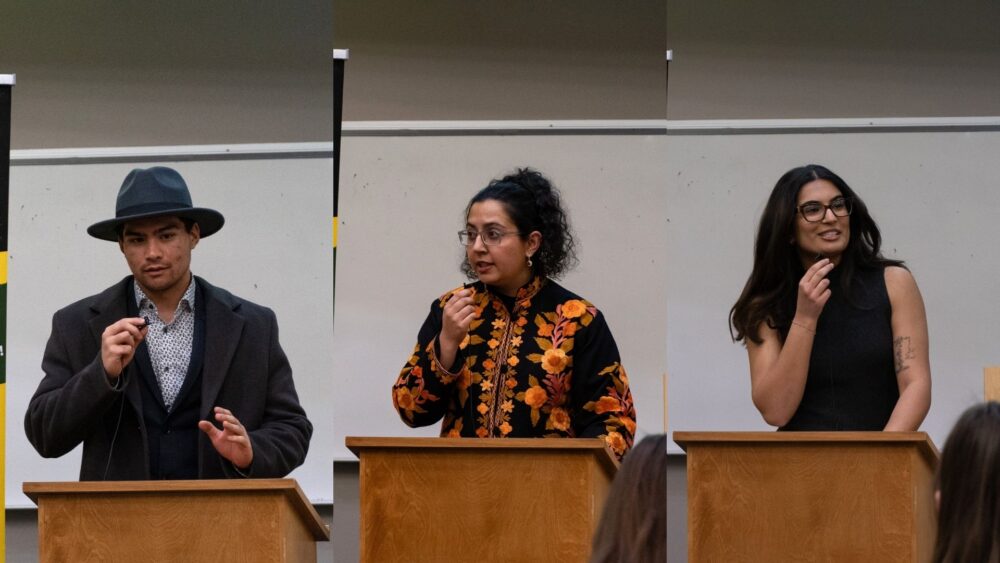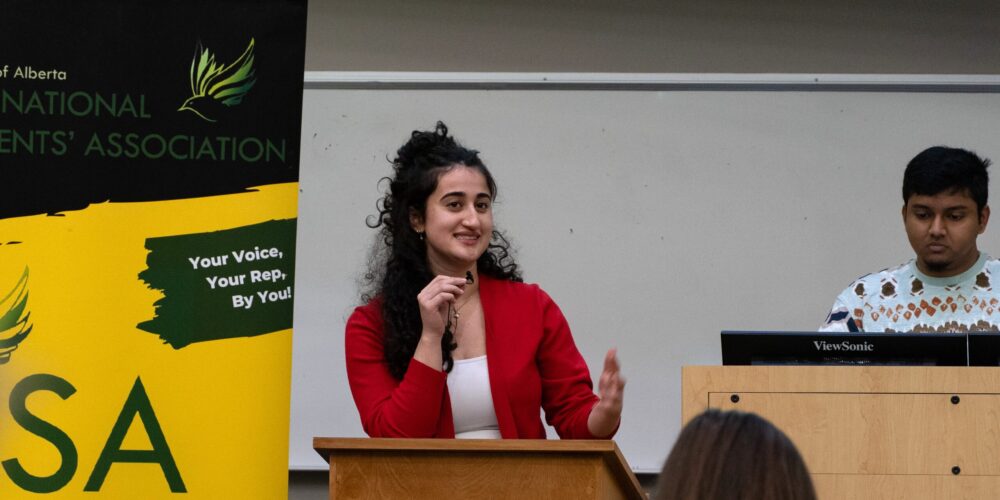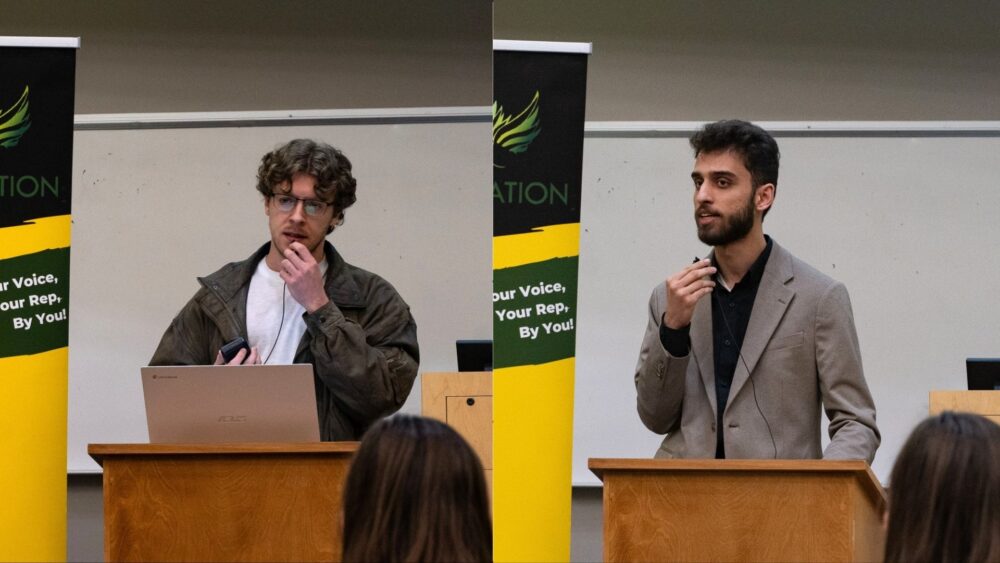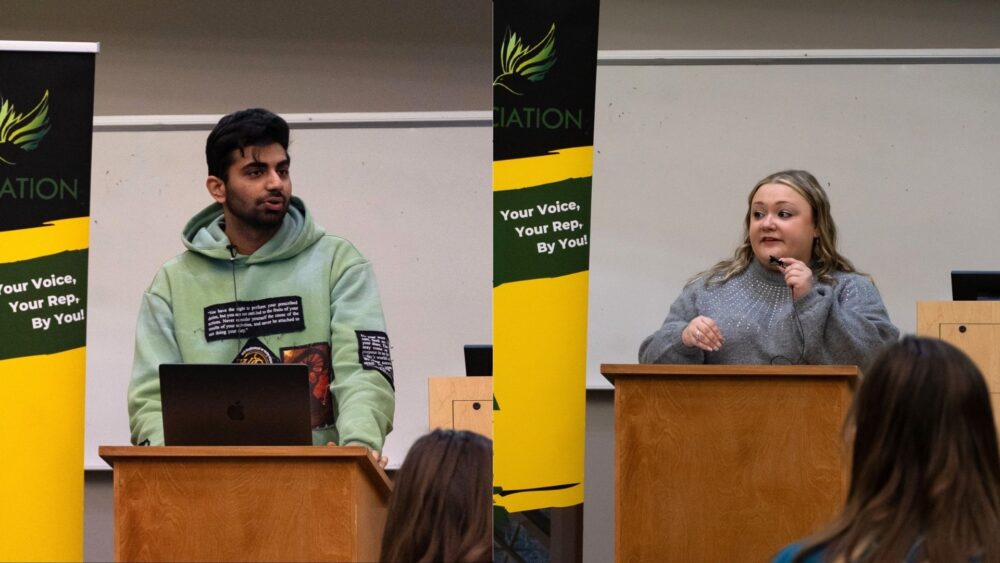 supplied
suppliedIt’s official: Alberta’s minimum wage is rising.
Currently, the general hourly minimum wage is $11.20, and if you work serving liquor, your wage is $10.70 an hour. As of Oct. 1st, 2016, the general minimum wage will increase to $12.20, and the separate liquor server rate will be eliminated. By Oct. 1st, 2017, minimum wages will be set at $13.60 and finally by Oct. 1st, 2018, minimum wage in Alberta will be $15 an hour.
A minimum wage increase to $15 an hour is a good thing. At twelve, thirteen, or fourteen years old, a minimum wage-earning young person hasn’t experienced much on their own in Alberta. When a young person enters into their formative years, they are trying on new identities, experimenting with different trends, and becoming an adult. Those working youth can access a greater range of music, clothing, styles, or experiences if they have the monetary means to do so. An increase in the minimum wage will provide working youth with means to individuality.
Some young families have simply not yet acquired the new skills to ascend into a career with a high paying salary. Poor luck, lack of opportunity, or uninformed choices have stifled some Albertan families’ financial freedom. It is unfortunate that a low-income family cannot afford a trip to the movies or a group-pass to the fair, because the cost of clothing, groceries, and rent is all they can afford.
I suspect a lot of Albertans who are opposed to a $15 minimum wage forget that some of our wait staff, retail clerks, gas station attendants, and theatre ushers are not simply uneducated lazy delinquents. Some of the people working for minimum wage cope with life-long physical and developmental disabilities as well as psychological conditions to varying degrees. Not everyone in Alberta is destined to receive a red-seal trade ticket or a post-secondary degree. An increase in the minimum wage can help fulfill individuals through enrolment in local art classes and music lessons – self-actualization isn’t reserved for those on campus.
Insurances, securities, compensations, tax-breaks, or subsidies combat the rising cost of living. Those financial assistance programs can support a family or an individual and help them access the beauties of life outside of immediate living. But what the forms, procedures, interviews, and processes for receiving additional financial support can’t do is give immediate and spontaneous access to culture.
In my past life (before I became an arts student), I was a ticketed automotive technician. I lived every car mechanic trope, cliché, stereotype, and myth one can think of. I also worked too devotedly, snatched every opportunity, and cashed in superiority. I fished, travelled, and experienced Alberta (and more) thanks to my monetary success. However, I am too aware that not everyone in Alberta has the financial means to enjoy an expensive cup of coffee, to see an opening-night play, or to ride a mountain gondola.
Experiencing the farmlands, the mountains, the lakes, and the rivers shouldn’t be reserved for the fiscally privileged. Attending a play, a festival, a market, and a film shouldn’t be for the financially advantaged. Musical instruments, art supplies, and literature collections shouldn’t be for the freaking rich. When Alberta gives more an hour to the people earning the minimum wage, it will provide a means for a few more to experience its culture.





And when the cost of living Alberta skyrockets because a stores overhead grew by $3.00 per hour then what? The higher up wages are going to go up proportionally and then we’re back where we started last year. Australia has a high minimum wage and i have met certified trades-persons earning over $200,000 in a year. This isn’t going to change anything but our inflation rates.